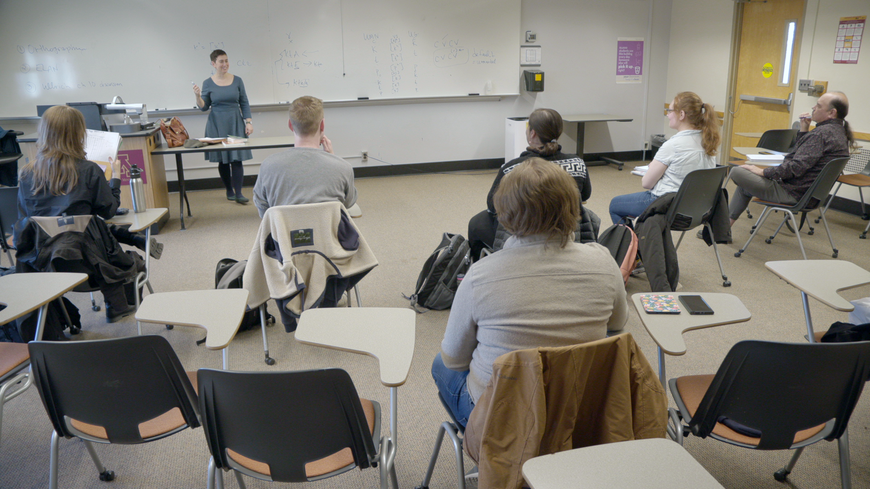Courses

The Linguistics graduate curriculum is designed to give you an overview and history of the field of Linguistics and some of its current major research questions (Introduction to Linguistics); to give you an understanding of and ability to do your own original research in the core grammatical areas (Syntactic Theory I-II, Phonological Theory I-II, Semantics/Advanced Semantics); and to give you training and practice in doing linguistic research directly with speakers of a language and in writing a large research paper (Field Methods I-II, Research Paper Workshop). Some linguistics electives build on the core courses, but others give you an opportunity to explore other areas of linguistics that may be interesting to you or related to your own research or goals.
All of our core graduate courses are listed below. In the first semester, students usually take three linguistics courses, since they are prerequisites for all that follow: LING 5001 (Introduction to Linguistics), LING 5201 (Syntactic Theory I), and LING 5302 (Phonological Theory I). Additionally, students often take one other course, either to satisfy the outside-the-major credit or the language requirements of the Linguistics MA and Linguistics PhD programs. If you’ve never taken any linguistics classes before, this load can be a heavy one, but the director of graduate studies can help you plan out different possible timelines should you run into any issues.
Core Courses:
- LING 5001 Introduction to Linguistics
- LING 5201 Syntactic Theory I
- LING 5202 Syntactic Theory II
- LING 5205 Semantics
- LING 5207 Advanced Semantics
- LING 5302 Phonological Theory I
- LING 5303 Phonological Theory II
- LING 8005 Research Paper Workshop
- LING 8105 Field Methods in Linguistics I
- LING 8106 Field Methods in Linguistics II
View a list of current and upcoming courses in Schedule Builder or in ClassInfo for in-depth information about classwork, expectations, and workload that provide a realistic understanding of what you will experience in each course.